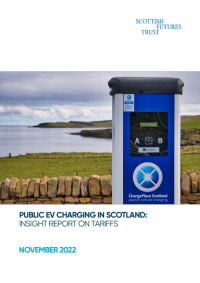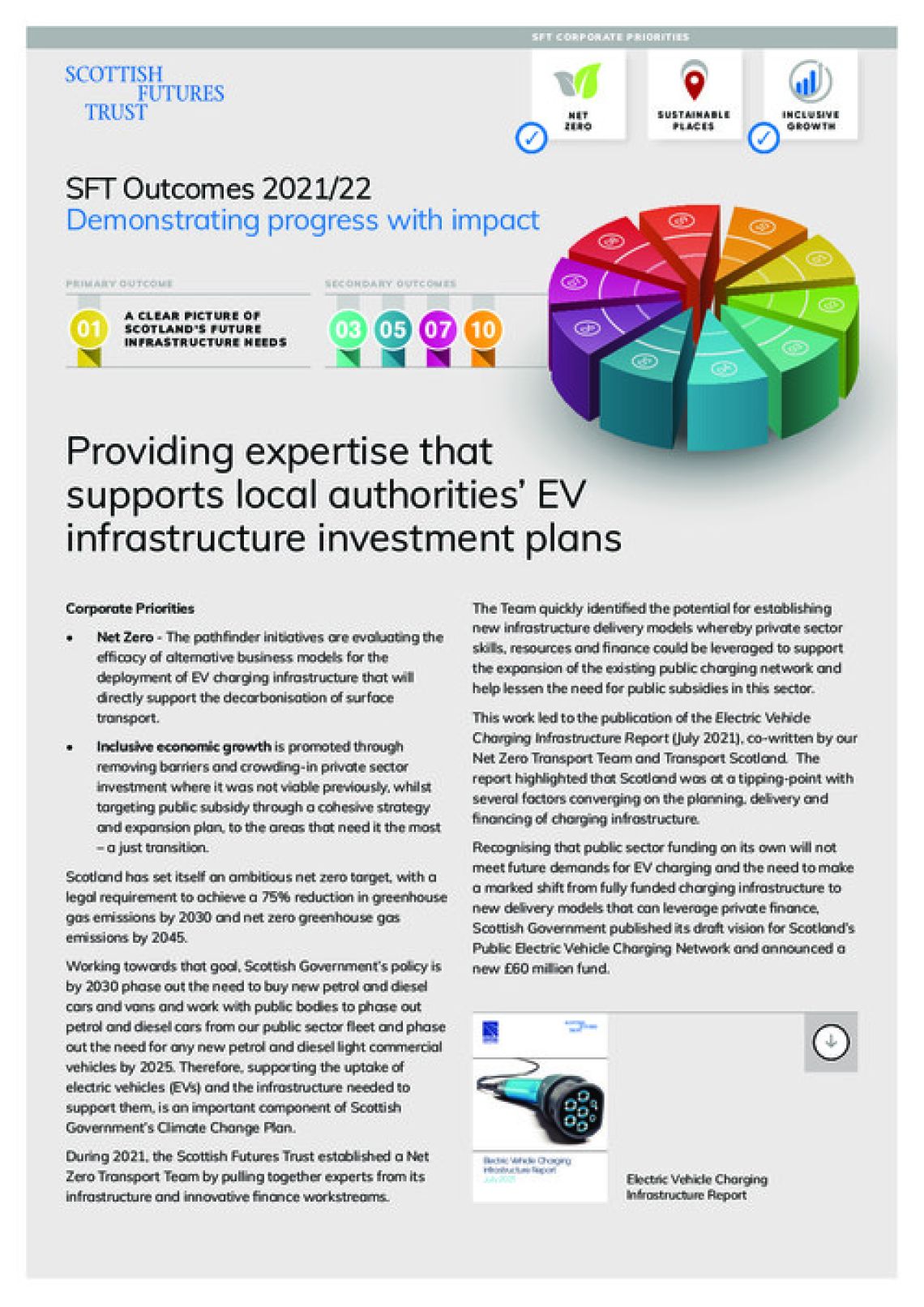Innovative Finance

Designing and developing financing structures that deliver investment and accelerate the transition to a net zero carbon economy
In times of significant capital budget constraint, delivering ‘additionality’ of investment over capital budgets, and within the Scottish fiscal framework, is important for economic recovery, sustaining jobs and the net zero transition.
The hub and Non-Profit Distributing forms of Public Private Partnerships (PPP) were developed to deliver key public sector assets when capital budget and borrowing powers did not match the investment ambition. These privately financed models are no longer in operation but we continue to report on the budgetary impact and project data. Scottish Government retains a new version of this type of privately financed infrastructure investment tool for public sector assets through the Mutual Investment Model.
For many future net zero assets (unlike PPP) the income stream will come from households and businesses. Therefore it is important to identify and engage with policymakers on how assets will be financed and how they will ultimately be paid for. Government-support programmes (grant, guarantees, public sector equity etc) will often still have a crucial role in bridging the gap until new markets become commercially viable and can attract investment.
To bridge this gap successfully, such programmes need to be carefully structured with a clear understanding as to how the support makes early projects viable, complements early-stage private investment and is clear on any eventual government ‘exit strategy’ where appropriate.
Our Innovative Finance team has a strong track record of devising and developing innovative funding and financing structures with a robust and commercially viable delivery focus.
We are engaged with other workstreams across the organisation and with government and industry, in considering funding and financing delivery structures for heat networks and EV infrastructure and are at an early stage in renewable electricity and green hydrogen.
We were asked by Scottish Government to examine new profit-sharing finance structures, such as the Welsh Government’s Mutual Investment Model (MIM), with a view to adding to the range of infrastructure investment approaches to help secure the investment required for the National Infrastructure Mission.
In May 2019, we published our Options Appraisal recommending a Scottish version of MIM as the best value-for-money option to deliver additionality over and above current capital and public borrowing sources of investment, which crucially meets the current technical rules for private classification.
The recommended option is based on the Welsh Government’s MIM and replicates many of the value-for-money features delivered by the Scottish Non-Profit-Distributing model, including:
- Competitive tender processes to attract value-for-money project finance
- Focus on wider community benefits and economic stimulus
- Strong project and programme governance and resourcing in place to deliver
- Project diligence and scrutiny on the design and whole-life-cost of the asset
- Use of standard form contracts, assurance processes and robust conditions for funding, benefiting from previous revenue-funded programmes, experience and lessons learned.
The MIM investment model includes the public sector as a co-investor and co-owner of up to 20% of each project delivery company.
We will continue our engagement with public and private bodies on the development of Scottish MIM.
We led the Non-Profit Distributing (NPD) programme as an alternative funding source to allow major infrastructure projects to be built.
NPD was developed to replace the traditional Private Finance Initiative (PFI) model with a number of projects in the transport, health and education sectors now open from where first-class public services are being delivered.
A key requirement of the NPD programme was to deliver local community benefits and support the local economy. Contractual targets were exceeded for the number of work placements, graduates and apprentices employed and the construction phases have supported approximately 8,000 jobs across Scotland.
Contract Documents
Clicking here will take you to an alphabetical list of all available project agreements and financial models for all projects delivered through the Non-Profit Distributing (NPD) programme.
Public Interest Directors and Independent Directors (PID/IDS)
A description of PID and ID roles in NPD Companies and the current director appointments are detailed here.
NPD Investor information
NPD project investors are detailed in the following file - NPD Investors. Updated information will be published annually in February.
NPD Financial Indicators
Weighted Average Cost of Capital (WACC) and Project Internal Rate of Return (IRR) information for the NPD programme and for individual projects which are beyond their confidentiality period is provided in the following file - WACC/Project IRR.
Our team

Andrew Bruce
Senior Associate Director
Andrew is an infrastructure financing specialist with over 20 years' experience spread between the public and private sectors.
His main focus is on accelerating the transition to net zero by developing business models and markets that allow substantial private investment and ensuring that public sector support is complementary to this goal.
He leads SFT’s Net Zero Transport team as well as working on the funding and financing challenges in heat decarbonisation, hydrogen and the renewable electricity markets.
Contact Andrew
Ruth Hann
Senior Associate Director
Ruth is a Chartered Accountant with experience as a financial advisor at a leading professional services firm and in contract management at a local authority.
She works in the SFTi team monitoring SFTi’s investments in 41 hub DBFM projects and the five hub companies across Scotland. She also works in the Innovative Finance & Net Zero Transport teams analysing and reporting on financial information to support the established hub and NPD infrastructure programmes as well as emerging infrastructure programmes.
Contact Ruth


